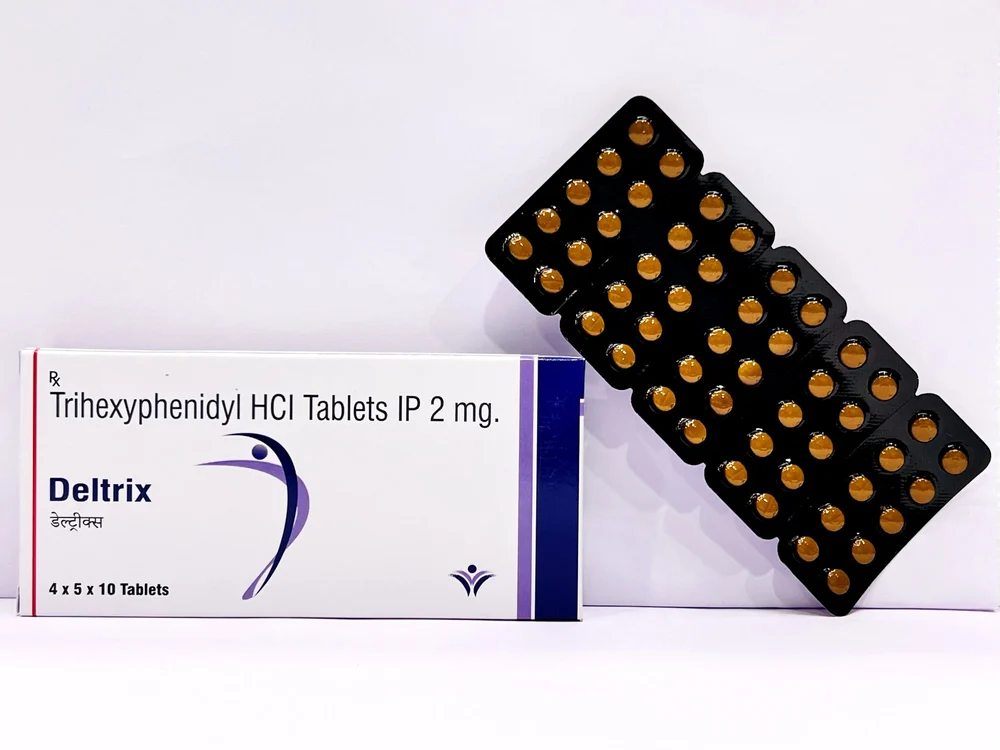✅ Prescription (Indications):
Trihexyphenidyl 2 mg is used for:
- Parkinson’s disease (especially early/mild cases)
- Drug-induced Parkinsonism (extrapyramidal symptoms from antipsychotics like haloperidol)
- Dystonia and tremors related to Parkinsonism
- Adjunct therapy with Levodopa in Parkinson’s disease
📄 Description:
- Generic Name: Trihexyphenidyl hydrochloride
- Strength: 2 mg per tablet
- Drug Class: Anticholinergic / Antiparkinsonian agent
- Dosage Form: Oral tablet
- Common Brand Names: Artane, Pacitane, Parkin, Trihex
- Mechanism of Action:
Blocks central cholinergic receptors in the brain → restores dopamine-acetylcholine balance in the basal ganglia → improves tremors, rigidity, and muscle stiffness in Parkinson’s and drug-induced extrapyramidal symptoms.
🌟 Advantages:
- Effective for tremors and rigidity in Parkinson’s
- Especially useful in younger patients with drug-induced extrapyramidal symptoms
- Helps manage muscle stiffness and resting tremors
- Can enhance response to Levodopa in Parkinson’s disease
⚗️ Nature of the Drug:
- Type: Oral anticholinergic
- Prescription-only: Yes
- Onset of Action: ~1 hour
- Duration of Effect: 6–12 hours
- Half-life: ~3–5 hours
📦 Common Packaging:
- Tablet strength: 2 mg
- Blister pack: 10 tablets per strip
- Box: Usually 10 strips (100 tablets)
- Tablet appearance: Round, white or off-white, depending on brand
🧊 Storage:
- Store at room temperature (below 25°C)
- Protect from moisture and direct sunlight
- Keep out of reach of children
👨⚕️ Patient Advice:
Before Use:
- Inform doctor if you have:
- Glaucoma (especially angle-closure type)
- Urinary retention
- Heart disease
- Prostatic hypertrophy
- Gastrointestinal obstruction
While Using:
- Start with low dose, increase gradually
- Take with food to reduce dry mouth and gastric upset
- Do not stop suddenly without doctor’s guidance
- May be used 1–3 times daily depending on severity
❌ Avoid:
- Driving or operating machinery until you know how it affects you
- Alcohol (may increase dizziness or drowsiness)
- Hot environments – risk of reduced sweating and overheating
- Taking other anticholinergic drugs without informing your doctor

